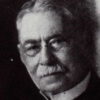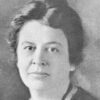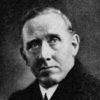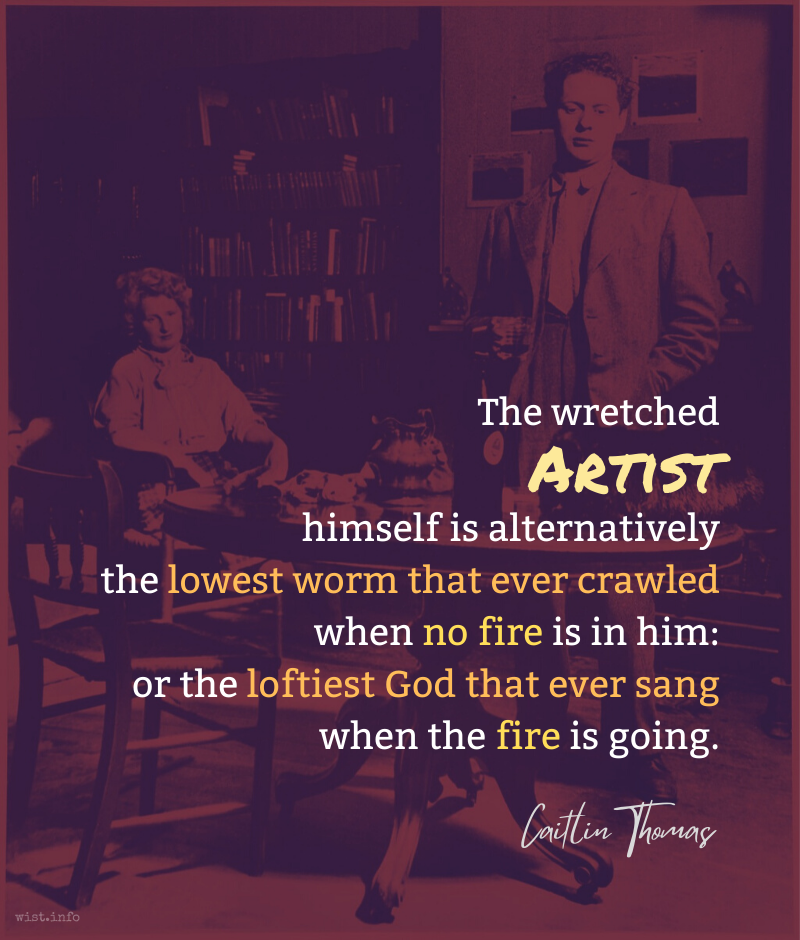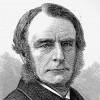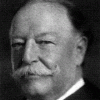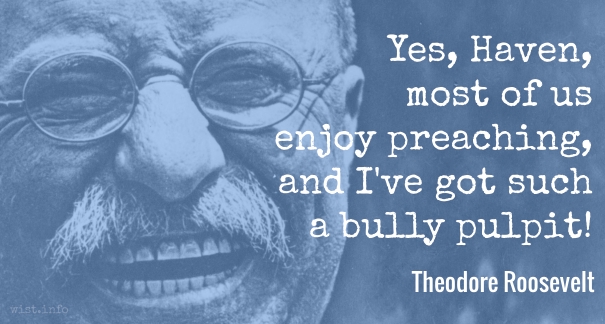Flaming enthusiasm, backed up by horse sense and persistence, is the quality that most frequently makes for success.
Dale Carnegie (1888-1955) American writer, lecturer
(Attributed)
Widely attributed to Carnegie. The only place I can find this phrase actually used by him "officially" is in Dale Carnegie's Scrapbook (1959) [ed. Dorothy Carnegie], where (four years after his death) the quote is described as "from the writings of Dale Carnegie" but with no further citation.
I was unable to find it online in any books by him. I did find a variant in an essay (1938-09-12) published in newspapers, regarding Alexander de Seversky (possibly one of Carnegie's "5-Minute Biographies" columns):What are the qualities that make for success? Superior knowledge? Yes, sometimes; but more frequently it is flaming enthusiasm backed up by horse-sense and persistence.
The article also ran in papers on 1946-07-29.
In the 1946 (Vol. 68-70) archive of the Fireman's Fund Record, I did find text reading "... they have flaming enthusiasm backed by horse sense and dauntless courage," but could not confirm the context or whether it was attributed to Carnegie.
Quotations about:
enthusiasm
Note not all quotations have been tagged, so Search may find additional quotes on this topic.
Nothing is better than a justified enthusiasm.
Joseph Joubert (1754-1824) French moralist, philosopher, essayist, poet
Pensées [Thoughts], 1814 entry [tr. Auster (1983)]
(Source)
I could not find an analog in other translations of the Pensées.
But here the main skill and ground-work will be, to temper them such lectures and explanations upon every opportunity as may lead and draw them in willing obedience, inflamed with the study of learning, and the admiration of virtue; stirred up with high hopes of living to be brave men, and worthy patriots, dear to God, and famous to all ages.
Vehemence is the expression of a blind effort to support and uphold something that can never stand on its own — something rootless, incoherent, and incomplete. Whether it is our own meaningless self we are upholding or some doctrine devoid of evidence, we can do it only in a frenzy of faith.
Eric Hoffer (1902-1983) American writer, philosopher, longshoreman
Passionate State of Mind, Aphorism 60 (1955)
(Source)
The man who does nothing cuts the same sordid figure in the pages of history, whether he be cynic, or fop, or voluptuary. There is little use for the being whose tepid soul knows nothing of the great and generous emotion, of the high pride, the stern belief, the lofty enthusiasm, of the men who quell the storm and ride the thunder.
Theodore Roosevelt (1858–1919) American politician, statesman, conservationist, writer, US President (1901–1909)
Speech (1910-04-23), “Citizenship in a Republic [The Man in the Arena],” Sorbonne, Paris
(Source)
However, it is my judgment in these things that when you see something that is technically sweet, you go ahead and do it and you argue about what to do about it only after you have had your technical success. That is the way it was with the atomic bomb.
J. Robert Oppenheimer (1904-1967) American theoretical physicist, "Father of the Atomic Bomb" [Julius Robert Oppenheimer]
“In the matter of J. Robert Oppenheimer,” testimony transcript, US Atomic Energy Commission, Personnel Security Board (1954-04-13)
(Source)
Youth is not a time of life; it is a state of mind; it is not a matter of rosy cheeks, red lips and supple knees; it is a matter of the will, a quality of the imagination, a vigor of the emotions; it is the freshness of the deep springs of life.
Youth means a temperamental predominance of courage over timidity of the appetite, for adventure over the love of ease. This often exists in a man of sixty more than a boy of twenty. Nobody grows old merely by a number of years. We grow old by deserting our ideals.
Years may wrinkle the skin, but to give up enthusiasm wrinkles the soul. Worry, fear, self-distrust bows the heart and turns the spirit back to dust.
Whether sixty or sixteen, there is in every human being’s heart the lure of wonder, the unfailing child-like appetite of what’s next, and the joy of the game of living.
When the aerials are down, and your spirit is covered with snows of cynicism and the ice of pessimism, then you are grown old, even at twenty, but as long as your aerials are up, to catch the waves of optimism, there is hope you may die young at eighty.
Samuel Ullman (1840-1924) German-American businessman, poet, humanitarian, religious leader
“Youth” (1918)
(Source)
This poem was a favorite of Douglas MacArthur, who had a copy hung in his office in Tokyo, and was responsible for much of the author's subsequent fame in Japan.
Success is going from failure to failure without losing your enthusiasm.
Winston Churchill (1874-1965) British statesman and author
(Spurious)
Widely attributed to Churchill, but not found in his writings or contemporary reports of his speech. It's also attributed to Abraham Lincoln, with similar lack of provenance.
Variants:More information about this quotation:
- "Success is the ability to move from one failure to another without loss of enthusiasm."
- "Courage is going from failure to failure without losing enthusiasm."
- "To succeed is to fail repeatedly, but without losing enthusiasm."
Never turn down the chance of an adventure, unless such chances are coming thick and fast, and maybe not even then.
Mignon McLaughlin (1913-1983) American journalist and author
The Second Neurotic’s Notebook, ch. 4 (1966)
(Source)
In this country, people don’t vote for, they vote against.
There is nothing in which Men more deceive themselves than in what the World calls Zeal. There are so many Passions which hide themselves under it, and so many Mischiefs arising from it, that some have gone so far as to say it would have been for the Benefit of Mankind if it had never been reckoned in the Catalogue of Virtues. It is certain, where it is once Laudable and Prudential, it is an hundred times Criminal and Erroneous; nor can it be otherwise, if we consider that it operates with equal Violence in all Religions, however opposite they may be to one another, and in all the Subdivisions of each Religion in particular.
Joseph Addison (1672-1719) English essayist, poet, statesman
Essay (1711-10-02), The Spectator, No. 185
(Source)
Come, weave us a scheme so I can pay them back!
Stand beside me, Athena, fire me with daring, fierce
as the day we ripped Troy’s glittering crown of towers down.
Stand by me — furious now as then, my bright-eyed one —
and I would fight three hundred men, great goddess,
with you to brace me, comrade-in-arms in battle![ἀλλ᾽ ἄγε μῆτιν ὕφηνον, ὅπως ἀποτίσομαι αὐτούς:
πὰρ δέ μοι αὐτὴ στῆθι, μένος πολυθαρσὲς ἐνεῖσα,
οἷον ὅτε Τροίης λύομεν λιπαρὰ κρήδεμνα.
αἴ κέ μοι ὣς μεμαυῖα παρασταίης, γλαυκῶπι,
καί κε τριηκοσίοισιν ἐγὼν ἄνδρεσσι μαχοίμην
σὺν σοί, πότνα θεά, ὅτε μοι πρόφρασσ᾽ ἐπαρήγοις]Homer (fl. 7th-8th C. BC) Greek author
The Odyssey [Ὀδύσσεια], Book 13, l. 386ff (13.386) [Odysseus] (c. 700 BC) [tr. Fagles (1996)]
(Source)
(Source (Greek)). Alternate translations:Advise then means to the reveng’d events
We both resolve on. Be thyself so kind
To stand close to me, and but such a mind
Breathe in my bosom, as when th’ Ilion tow’rs
We tore in cinders. O if equal pow’rs
Thou wouldst enflame amidst my nerves as then,
I could encounter with three hundred men,
Thy only self, great Goddess, had to friend,
In those brave ardors thou wert wont t’ extend!
[tr. Chapman (1616)]But now, O Pallas, find out some device,
How of the suitors best I may be rid,
And by me stand, inspiring courage stout,
As when we pull’d Troy’s head-gear off her head.
For then to master them I should not doubt,
Three hundred though they were.
[tr. Hobbes (1675), l. 347ff]Vouchsafe the means of vengeance to debate,
And plan with all thy arts the scene of fate.
Then, then be present, and my soul inspire,
As when we wrapp'd Troy's heaven-built walls in fire.
Though leagued against me hundred heroes stand.
Hundreds shall fall, if Pallas aid my hand.
[tr. Pope (1725)]Come then -- Devise the means; teach me, thyself,
The way to vengeance, and my soul inspire
With daring fortitude, as when we loos’d
Her radiant frontlet from the brows of Troy.
Would’st thou with equal zeal, O Pallas! aid
Thy servant here, I would encounter thrice
An hundred enemies, let me but perceive
Thy dread divinity my prompt ally.
[tr. Cowper (1792), l. 466]Come, weave me counsel neither void nor vain,
That red vengeance reap till not a man remain!
But stand thou near, and such bold strength inspire
As when we loosed the shining tiars of Troy.
If thou stand near me to inbreathe like fire,
Then with three hundred could I fight with joy!
[tr. Worsley (1861), st. 49-50]Come! weave some plan for my revenge upon them!
Stand by me fast, and inspire with daring courage,
As when from Troy we loosed her glittering tire.
If thou, Eyebright! thus breathing fire stand by me,
I fain would fight 'gainst e'en three hundred men --
With thee, dread goddess, close at hand to aid me!
[tr. Bigge-Wither (1869)]Now let thy mind
The plot contrive which on that hateful crew
May all my vengeance wreak -- and then do thou
Thyself beside me stand, and in my soul
Such dauntless valor rouse as in me wrought
When we the crested pride of Ilion's tow'rs
Cast down in overthrow. If, in that hour,
O, azure-eyed! thou would'st but at my side
Thy presence grant, I, with three hundred men,
By thy prompt succor champion'd to the fight,
Would thou stood'st by, in conflict would engage.
[tr. Musgrave (1869), l. 614ff]Come then, weave some counsel whereby I may requite them; and thyself stand by me, and put great boldness of spirit within me, even as in the day when we loosed the shining coronal of Troy. If but thou wouldest stand by me with such eagerness, thou grey-eyed goddess, I would war even with three hundred men, with thee my lady and goddess, if thou of thy grace didst succour me the while.
[tr. Butcher/Lang (1879)]But I prithee weave and devise it how of these avenged I may be;
And stand by me thyself and set in me that heart for the battle-joy
As wherewith we loosed aforetime the shining coif of Troy.
If thou stand beside me, O Grey-eyed, as battle-glad as then,
Forsooth would I hold the battle 'gainst thrice an hundred men,
With thee, O worshipped Goddess, so kind to bear me aid.
[tr. Morris (1887)]Come then, and frame a plot for me to win revenge. And do you stand beside me, inspiring hardy courage, even so as when we tore the shining crown from Troy. If you would stand as stoutly by me, clear-eyed one, then I would face three hundred men, mat4ed with you, dread goddess, with you for my strong aid.
[tr. Palmer (1891)]Advise me how I shall best avenge myself. Stand by my side and put your courage into my heart as on the day when we loosed Troy's fair diadem from her brow. Help me now as you did then, and I will fight three hundred men, if you, goddess, will be with me.
[tr. Butler (1898)]But come, weave some plan by which I may requite them; and stand thyself by my side, and endue me with dauntless courage, even as when we loosed the bright diadem of Troy. Wouldest thou but stand by my side, thou flashing-eyed one, as eager as thou wast then, I would fight even against three hundred men, with thee, mighty goddess, if with a ready heart thou wouldest give me aid.
[tr. Murray (1919)]Wherefore extend your bounty and disclose how I may avenge myself upon these suitors. Stand by me, Mistress, fanning my valorous rage as on the day we despoiled shining Troy of its pride of towers. With your countenance, august One, I would fight three hundred men together: only buoy me up with your judicious aid, O wise-eyed Goddess.
[tr. Lawrence (1932)]I beseech you to think of some way by which I could pay these miscreants out. And take your stand at my side, filling me with the spirit that dares all, as you did on the day when we pulled down Troy’s shining diadem of towers. Ah, Lady of the bright eyes, if only you would aid me with such vehemence as you did then, I could fight against three hundred, with you beside me, sovran goddess, and with your whole-hearted help to count on!
[tr. Rieu (1946)]Weave me a way to pay them back! And you, too,
take your place with me, breathe valor in me
the way you did that night when we Akhaians
unbound the bright veil from the brow of Troy!
O grey-eyed one, fire my heart and brace me!
I'll take on fighting men three hundred strong
if you fight at my back, immortal lady!
[tr. Fitzgerald (1961)]Come then, weave the design, the way I shall take my vengeance
upon them; stand beside me, inspire me with strength and courage,
as when together we brought down Troy's shining coronal.
For if in your fury, O gray-eyed goddess, you stood beside me,
I would fight, lady and goddess, with your help against three hundred v men if you, freely and in full heart, would help me.
[tr. Lattimore (1965)]Come, goddess, weave some plan
that lets me punish them. Stand at my side;
give me the gift of courage, as you did
when we tore loose Troy's gleaming diadem.
Were you, just as impetuous as then,
to stand beside me, gray-eyed goddess, I
could face even three hundred enemies:
I need your ready heart; I need your help.
[tr. Mandelbaum (1990)]Weave a plan so I can pay them back!
And stand by me yourself, give me the spirit I had
When we ripped down Troy's shining towers!
With you at my side, you reyes glinting
And your mind focused on battle -- I would take on
Three hundred men if your power were with me.
[tr. Lombardo (2000), l. 401ff]But come, devise some ingenious scheme to punish these miscreants. And take your stand at my side, filling me with the spirit that dares all, as you did on the day when we pulled down Troy's shining diadem of towers. Ah, Lady of the Bright Eyes, if only you would waid me with such eagerness as you did then, I could fight against three hundred, with you beside me, gracious goddess, with your whole-hearted support to count on.
[tr. DCH Rieu (2002)]So come now, weave me a scheme of revenge upon these men, and yourself stand by my side, fill me with strength and daring, as when we undid the bright diadem of Troy! Were you, grey-eyed goddess, beside me, hot to fight, I'd take on, with you, three hundred warriors, O my sovereign goddess, given your free and ready support.
[tr. Green (2018)]Come, weave a plan so I can pay them back.
Stand in person by my side, and fill me
with indomitable courage, as you did
when we loosed the bright diadem of Troy.
I pray, goddess with the glittering eyes,
that you are with me now as eagerly
as you were then. If so, then I would fight
three hundred men, if you, mighty goddess,
in your heart are willing to assist me.
[tr. Johnston (2019), l. 473ff]
The mocking bird is music-mad to-night,
He thinks the stars are notes;
That he must sing each spattered star, and be
A choir of many throats.The earth is his cathedral, and its dome
Is all the light-pricked sky;
The pear-tree is his choir loft, and there
He flings his mad songs high.
The world belongs to the enthusiast who keeps cool.
The wretched Artist himself is alternatively the lowest worm that ever crawled when no fire is in him: or the loftiest God that ever sang when the fire is going.
Caitlin Thomas (1913-1994) British author, wife of Dylan Thomas [née Macnamara]
Not Quite Posthumous Letter to My Daughter (1963)
(Source)
I feel my heart glow with an enthusiasm which elevates me to heaven, for nothing contributes so much to tranquillize the mind as a steady purpose — a point on which the soul may fix its intellectual eye.
When all the world is young, lad,
And all the trees are green;
And every goose a swan, lad,
And every lass a queen;
Then hey for boot and horse, lad,
And round the world away;
Young blood must have its course, lad,
And every dog his day.Charles Kingsley (1819-1875) English clergyman, historian, essayist, novelist (pseud. "Parson Lot")
“Water Babies,” Song 2, st. 1 (1863)
(Source)
Yes, Haven, most of us enjoy preaching, and I’ve got such a bully pulpit!
Theodore Roosevelt (1858–1919) American politician, statesman, conservationist, writer, US President (1901–1909)
(Attributed)
In George Haven Putnam, The Works of Theodore Roosevelt, Vol. 9, Introduction (1926). Roosevelt's reply when, during his first presidential term, Putnam accused him of tending to preach to people.
The sense of this word among the Greeks affords the noblest definition of it; enthusiasm signifies God in us.
Where men are the most sure and arrogant, they are commonly the most mistaken, and have there given reins to passion, without that proper deliberation and suspense, which can alone secure them from the grossest absurdities.
Did you ever think that making a speech on economics is a lot like pissin’ down your leg? It seems hot to you, but it never does to anyone else.
Lyndon B. Johnson (1908-1973) American politician, educator, US President (1963-69)
Comment (1965 c.) to John Kenneth Galbraith
(Source)
Quoted in Galbraith, Name-Dropping, ch. 11 (1999).
For when many rejoice together, the joy of each one is richer: they warm themselves at each other’s flame.
[Quando enim cum multis gaudetur, et in singulis uberius est gaudium, quia fervefaciunt se et inflammantur ex alterutro.]
Augustine of Hippo (354-430) Christian church father, philosopher, saint [b. Aurelius Augustinus]
Confessions, Book 8, ch. 4 / ¶ 9 (8.4.9) [tr. Sheed (1943)] (c. AD 398)
(Source)
(Source (Latin)). Alternate translations:For when many joy together, each also has more exuberant joy for that they are kindled and inflamed one by the other.
[tr. Pusey (1838)]For when many rejoice together, each also has more exuberant joy; for that they are kindled and inflamed one by the other.
[ed. Shedd (1860)]For when many rejoice together, the joy of each one is the fuller in that they are incited and inflamed by one another.
[tr. Pilkington (1876)]For when many rejoice together, in each there is an overflowing joy, for they kindle themselves and are kindled by one another.
[tr. Hutchings (1890)]For, when joy is shared with many, the joy of each is richer, because they warm one another, catch fire from one another.
[tr. Bigg (1897)]For when many rejoice together the joy of each one is fuller, in that they warm one another, catch fire from each other.
[tr. Outler (1955)]For when many men rejoice together, there is a richer joy in each individual, since they enkindle themselves and they inflame one another.
[tr. Ryan (1960)]When large numbers of people share their joy in common, the happiness of each is greater because each adds fuel to the other’s flame.
[tr. Pine-Coffin (1961)]For when many people rejoice together, the joy of each individual is all the richer, since each one inflames the other and the warmth spreads throughout them all.
[tr. Warner (1963)]For when joy is shared with many, joy is fuller in each. They grow ardent and are fired each by the other.
[tr. Blaiklock (1983)]
if you are writing without zest, without gusto, without love, without fun, you are only half a writer. It means you are so busy keeping one eye on the commercial market, or one ear peeled for the avant-garde coterie, that you are not being yourself. You don’t even know yourself. For the first thing a writer should be is — excited. He should be a thing of fevers and enthusiasms. Without such vigor, he might as well be out picking peaches or digging ditches; God knows it’d be better for his health.
Ray Bradbury (1920-2012) American writer, futurist, fabulist
“The Joy of Writing,” Zen & the Art of Writing and The Joy of Writing, Capra Chapbook No. 13 (1973)
(Source)
Reprinted in Bradbury, Zen in the Art of Writing (1990).
People who like this sort of thing will find this the sort of thing they like.
Abraham Lincoln (1809-1865) American lawyer, politician, US President (1861-65)
(Attributed)
One of the earliest references to something like this was in an 1863 newspaper ad for Lincoln’s favorite humorist, Artemus Ward, that included this faux testimonial (possibly written by Ward): “I have never heard any of your lectures, but from what I can learn I should say that for people who like the kind of lectures you deliver, they are just the kind of lectures such people like. Yours respectfully, O. Abe.”
Quoted in G.W.E. Russell, Collections and Recollections, ch. 30 (1898), regarding “an unreadably sentimental book.”
According to Anthony Gross, Lincoln’s Own Stories (1902), Lincoln’s was speaking to Robert Dale Owen, who had insisted on reading to Lincoln a long manuscript on spiritualism. "Well, for those who like that sort of thing, I should think it is just about the sort of thing they would like."
In Emanual Hertz, ed., "Father Abraham," Lincoln Talks: A Biography in Anecdote (1939), the response was to a young poet asking him about his newly published poems.
More discussion of this quotation: Ralph Keyes, The Quote Verifier.
Give as thou wouldest receive, cheerfully and quickly, without hesitation, or bargaining.
Thomas Fuller (1654-1734) English physician, preacher, aphorist, writer
Introductio ad Prudentiam, Vol. 1, # 418 (1725)
(Source)
ANTONY: To business that we love we rise betime
And go to ’t with delight.William Shakespeare (1564-1616) English dramatist and poet
Antony and Cleopatra, Act 4, sc. 4, l. 27ff (4.4.27-28) (1607)
(Source)







